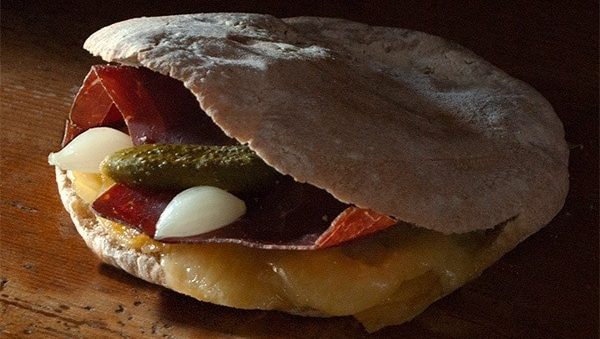France loves a fête. The country holds thousands and thousands each year. My favourite is the Fête de l’Andouille, or sausage festival, which happens annually in Guémené-sur-Scorff, a charming town in Brittany.
Where there are usually only around 1,000 people – mostly Breton, though there’s a sizable community of British expats – more than 30 times that number descend. They drink cider, dance in a Celtic fashion and eat a pungent sausage made of offal. The andouille is also blessed by a priest.
If ever you attend (it’s held every August) I advise you to visit Aux Sabots Rouge, a small bar within which white wine is inexpensive, cod sits on lentils and a gypsy band is likely to show up and perform.
Elsewhere, in Beaulieu-sur-Dordogne, slap bang in the middle of France (to be referential, the town is about an hour away from Perigord, where Keith Floyd once made a goat’s cheese and walnut salad while filming for the BBC), residents celebrate strawberries each year in May.
The highlight is when all the bakers and patissiers join forces to make an eight-metre-wide strawberry tart using more than 800kg of fresh berries. Everyone there is offered a slice.
And I have always wanted to go to the Fête de l’Omelette Géante in Bessières, just north of Toulouse. For three days in spring, there are parades and performances and then 15,000 eggs are cracked into a 13ft frying pan, which they place in the town square with the assistance of a forklift truck, then season with 70 litres of duck fat.
Another of these is held in Saint-Aygulf, Provence, but Bessières has the better back story: Napoleon arrived late and ordered an omelette at a local inn, loved it, and returned the next day with his troops and demanded the same again, only bigger. It is unfortunate that Ridley Scott failed to dramatise this event in his recent movie documenting the little narcissist’s life.
You don’t need me to tell you that these festivals are suitably bonkers. Provincial France is often delirious, a hotbed of balsamic glaze, moustaches and cars manoeuvred elegantly around country lanes.
Especially in western France, a culinary speciality called fouées – soft, airy bread similar to pitta – usually make an appearance, too. Fouées, dainty hot pockets that they are, can come with pork rillettes, garlic and parsley butter, black pudding, even braised white beans. They were first made in medieval times.
But sadly, foulness has arrived in the land of fouées. La Fête des Vins d’Anjou-Saumur, a 63-year-old annual party for the crisp wines of the Loire Valley, has been cancelled this year after claims surfaced last week that a food stall serving fouées stuffed with pork was owned by a far right activist.
Reports from the normally peaceful town of Chalonnes-sur-Loire say the Union of Producers of Great Wines (a name that could only exist in France) then canned the event following a “campaign of intimidation and threats of anti-racist protests”. Word is, activists had started circulating flyers denouncing La Flamme Angevine, purportedly owned by Jean-Eudes Gannat, once the spokesman for Alvarium, a group banned by president Macron in 2021.
And so there will be no racist bread in and around Chalonnes this year, and for that we must be thankful. But that doesn’t mean there can’t be any bread. Out of darkness come fouées, a food not represented in Britain but probably should be.
I’ve spent a lot of time in and around Saumur and can attest to the quality of the fouée. It is a simple bread roll, one made only of flour, yeast, water and salt, and was conceived out of small morsels of dough in order to test the temperature of the oven (hot enough and the bread will rise).
Why these haven’t crossed the Channel is a mystery to me. Let this loss for Chalonnes-sur-Loire be Britain’s gain.




